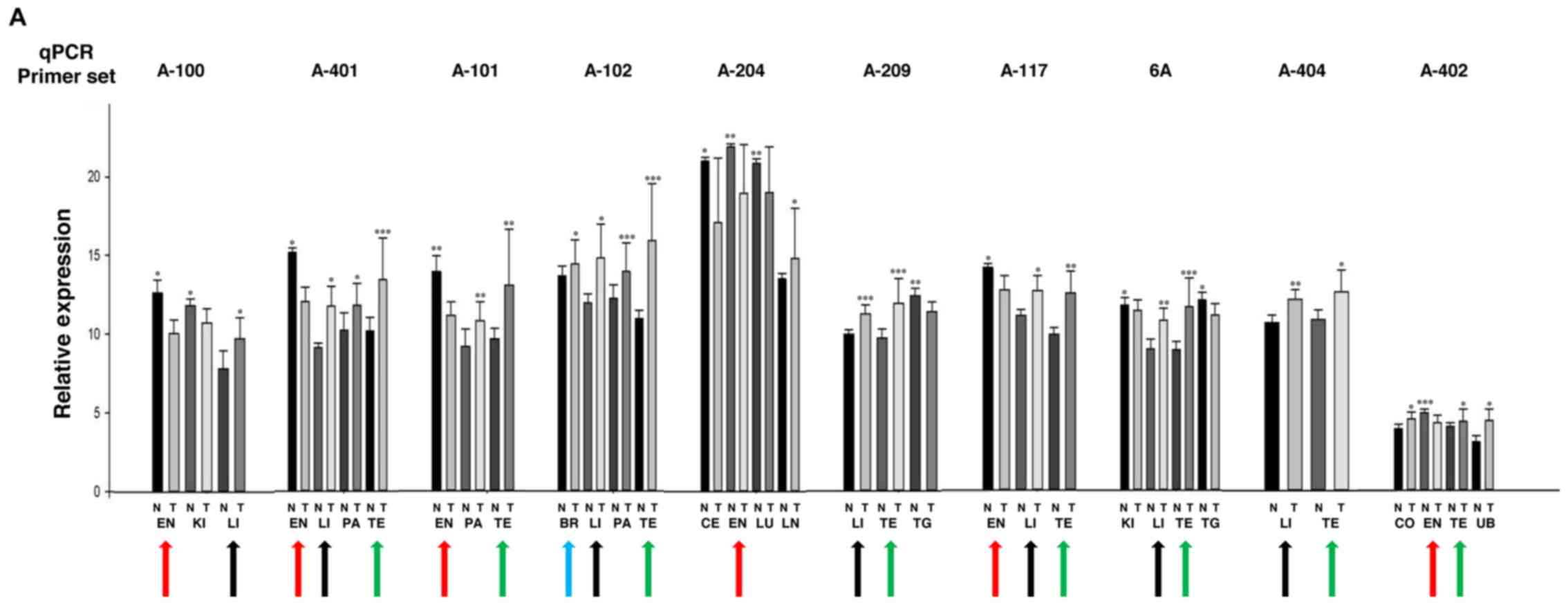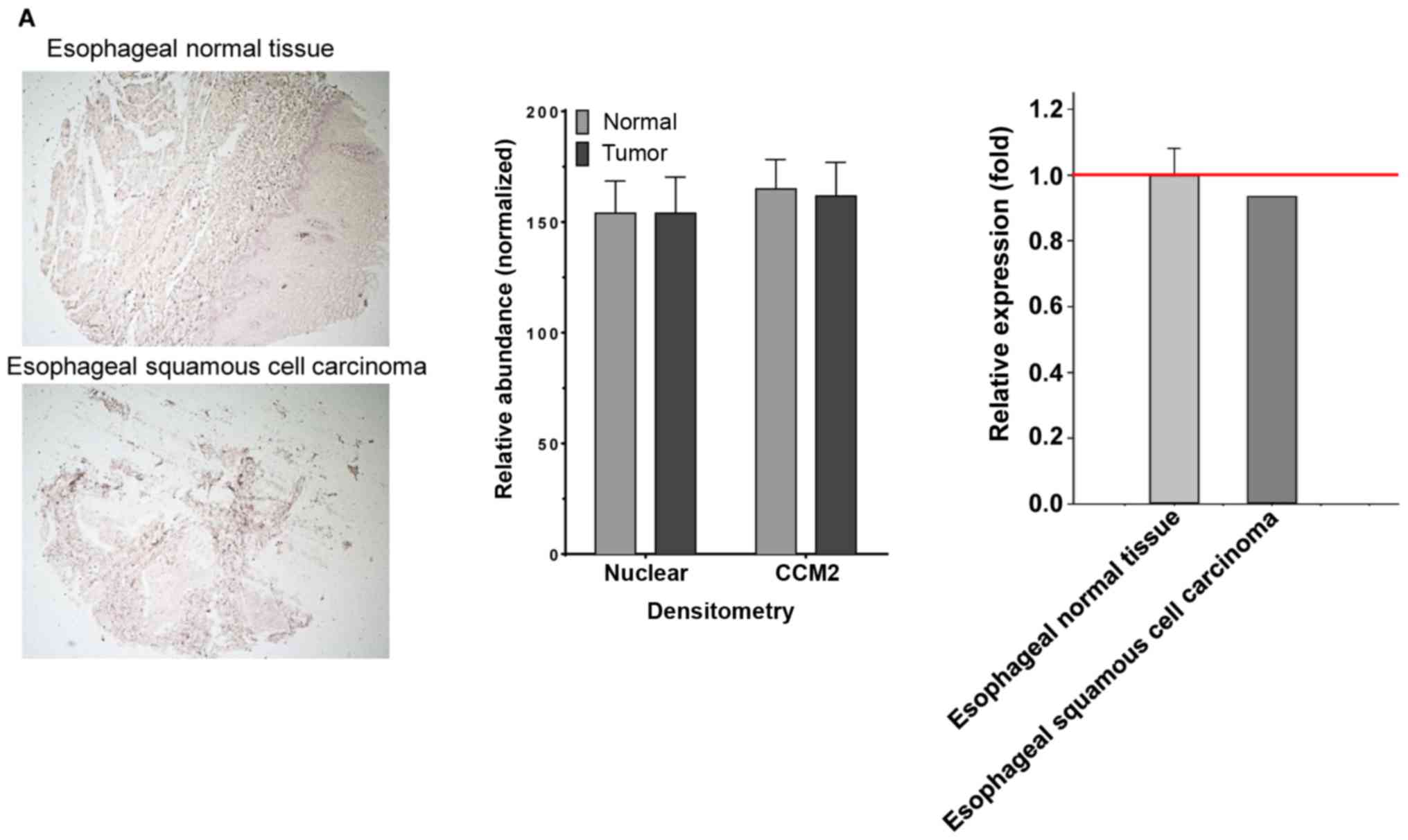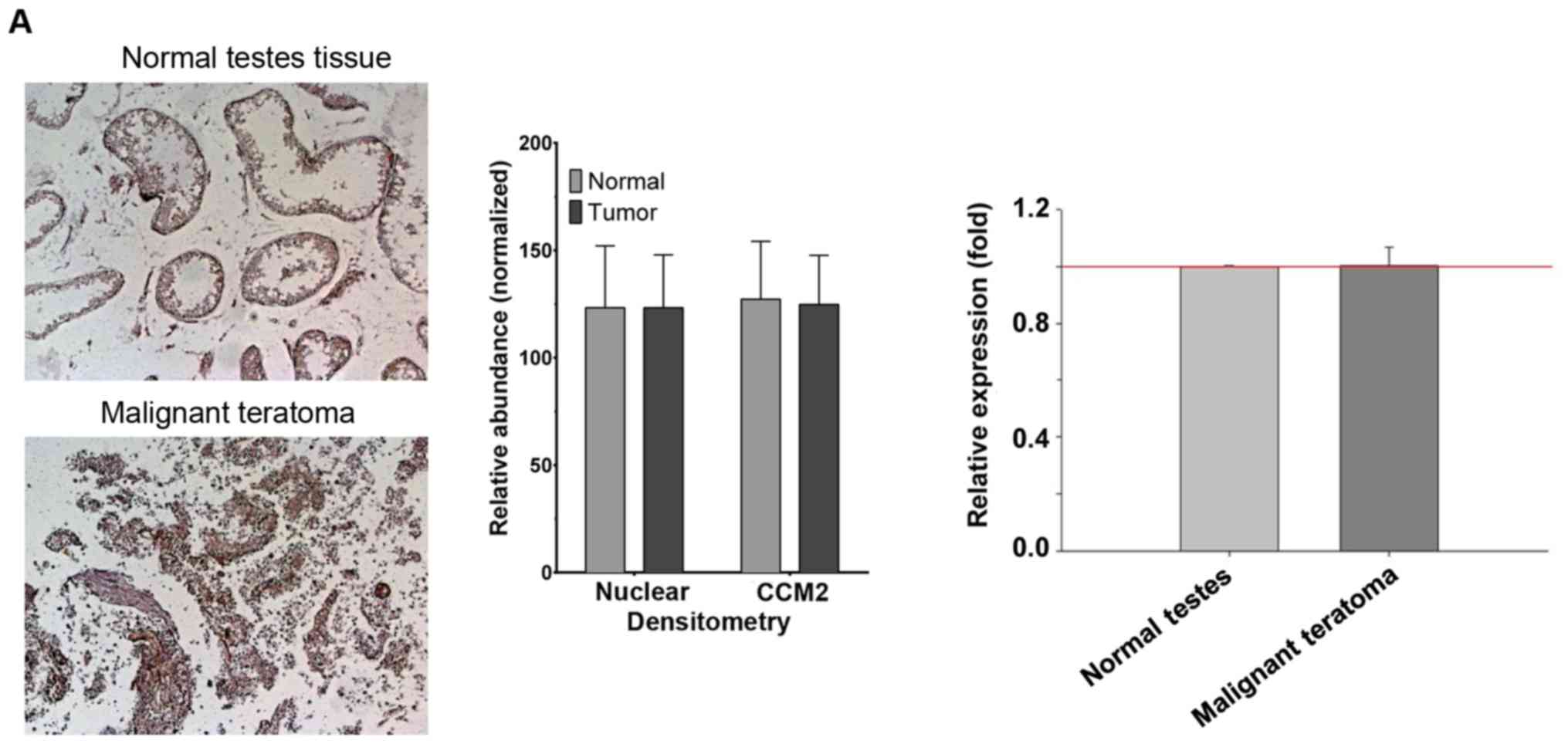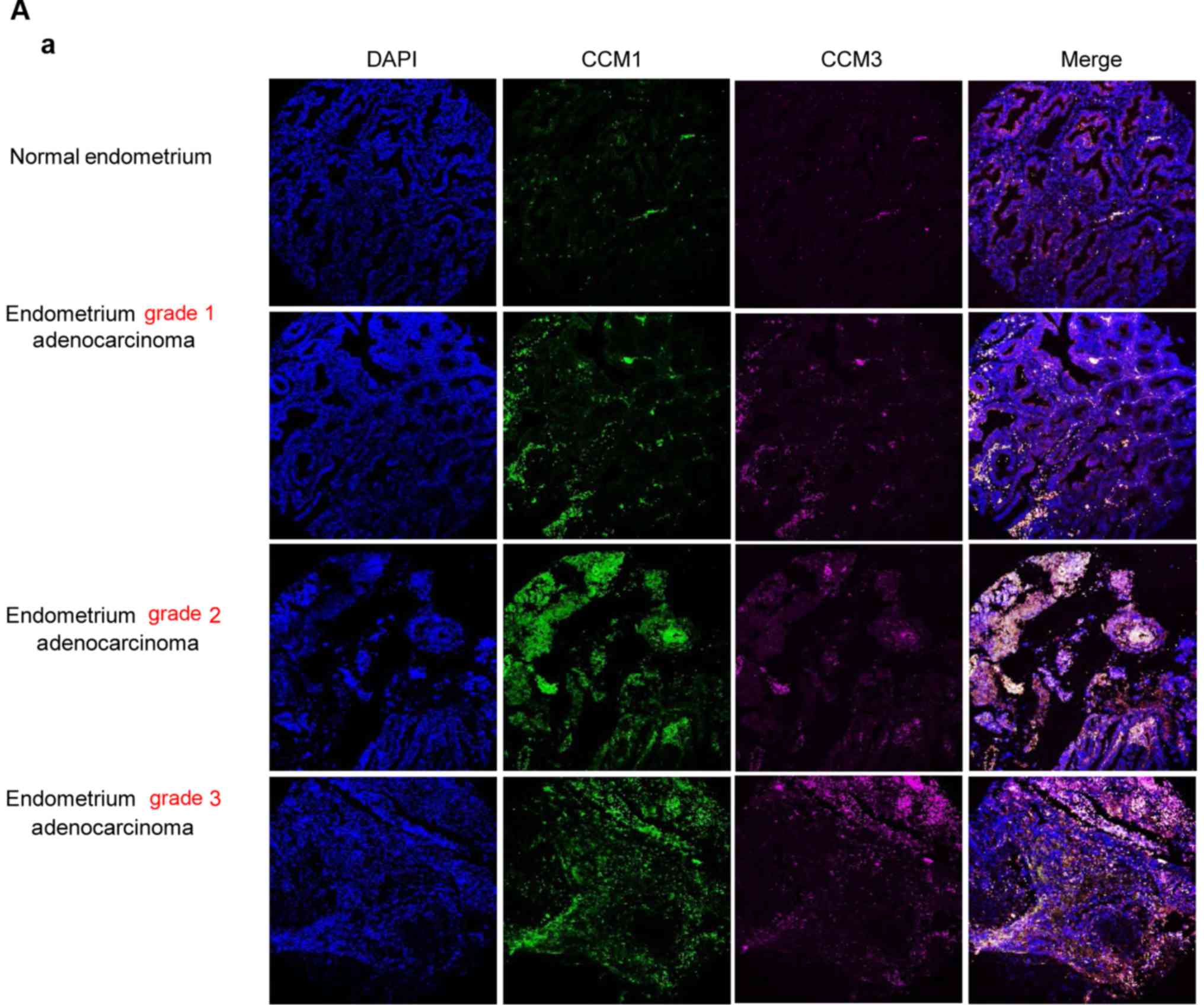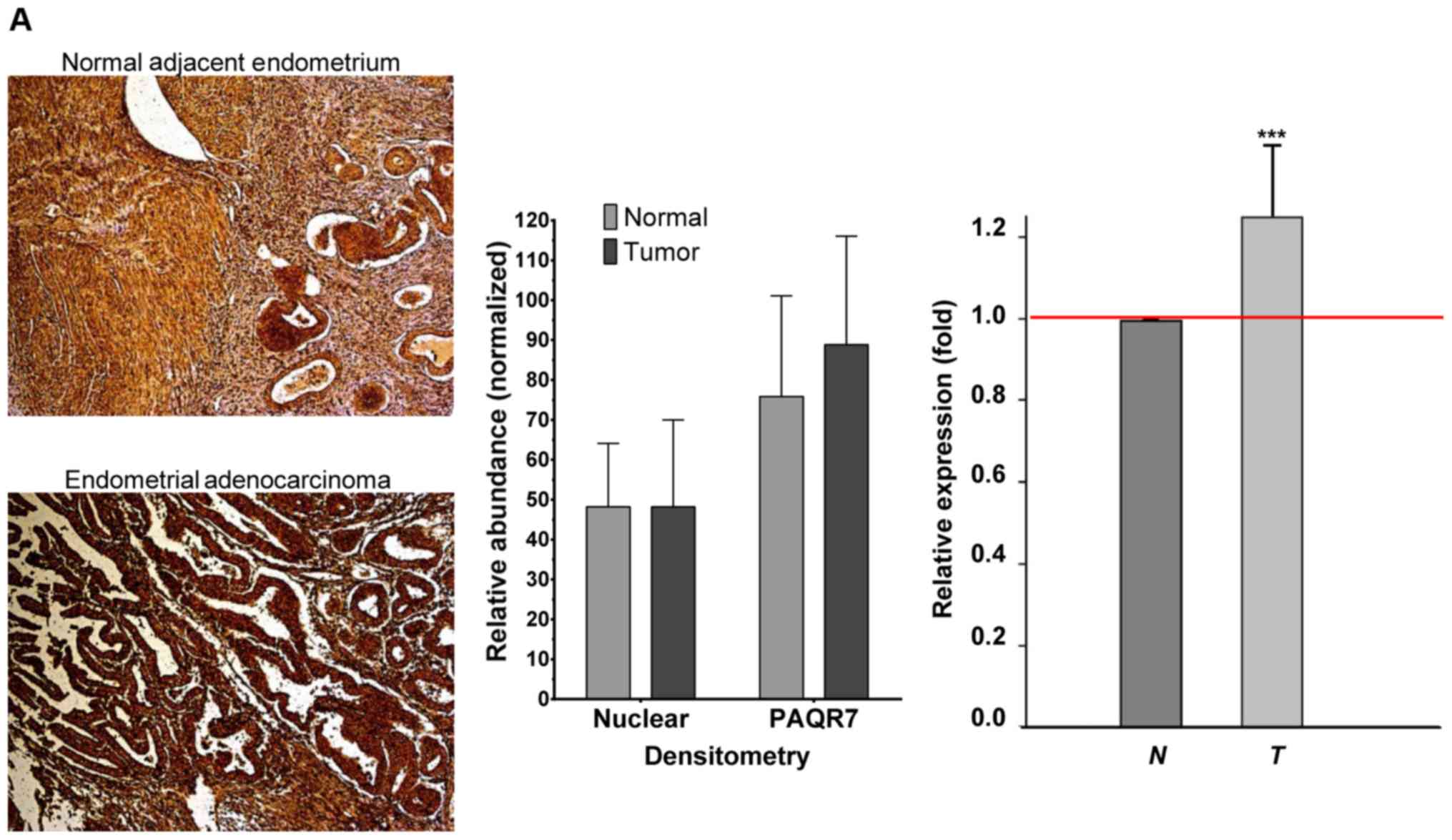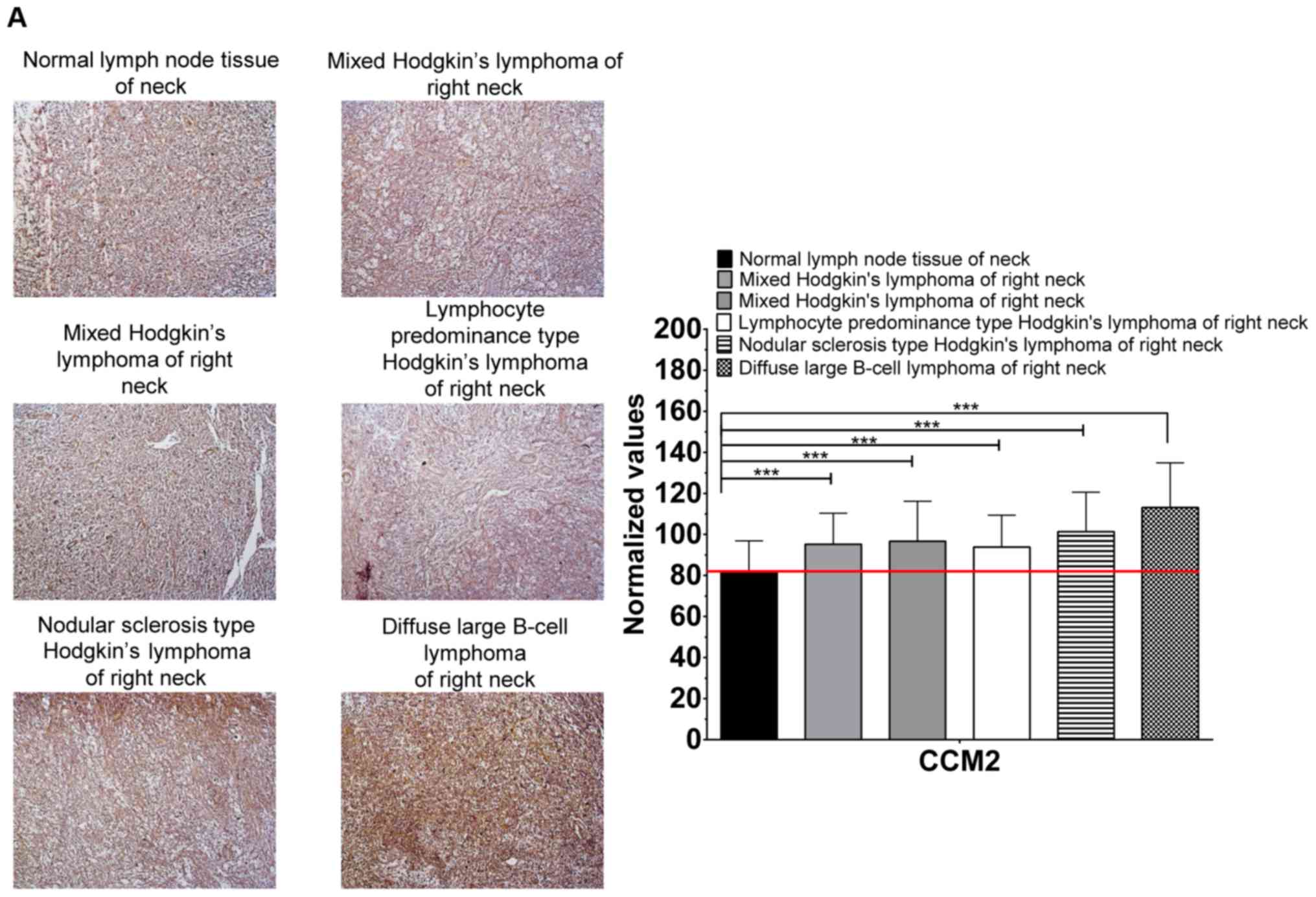|
1
|
Zhang J, Clatterbuck RE, Rigamonti D,
Chang DD and Dietz HC: Novel insights regarding the pathogenesis of
cerebral cavernous malformation (CCM). Am J Hum Genet.
69:1782001.
|
|
2
|
Zhang J, Basu S, Rigamonti D, Dietz HC and
Clatterbuck RE: Krit1 modulates beta 1-integrin-mediated
endothelial cell proliferation. Neurosurgery. 63:571–578;
discussion 578. 2008. View Article : Google Scholar
|
|
3
|
Zhang J: Molecular biology of cerebral
cavernous malformation. Cavernous Malformations of the Nervous
System. Rigamonti D: Cambridge University Press; New York, NY: pp.
31–40. 2011, View Article : Google Scholar
|
|
4
|
Zhang J, Carr C and Badr A: The
cardiovascular triad of dysfunctional angiogenesis. Transl Stroke
Res. 2:339–345. 2011. View Article : Google Scholar :
|
|
5
|
Zhang J, Dubey P, Padarti A, Zhang A,
Patel R, Patel V, Cistola D and Badr A: Novel functions of CCM1
delimit the relationship of PTB/PH domains. Biochim Biophys Acta
Proteins Proteomics. 1865:1274–1286. 2017. View Article : Google Scholar
|
|
6
|
Padarti A and Zhang J: Recent advances in
cerebral cavernous malformation research. Vessel Plus. 2:212018.
View Article : Google Scholar :
|
|
7
|
Ma X, Zhao H, Shan J, Long F, Chen Y, Chen
Y, Zhang Y, Han X and Ma D: PDCD10 interacts with Ste20-related
kinase MST4 to promote cell growth and transformation via
modulation of the ERK pathway. Mol Biol Cell. 18:1965–1978. 2007.
View Article : Google Scholar :
|
|
8
|
Hilder TL, Malone MH, Bencharit S,
Colicelli J, Haystead TA, Johnson GL and Wu CC: Proteomic
identification of the cerebral cavernous malformation signaling
complex. J Proteome Res. 6:4343–4355. 2007. View Article : Google Scholar
|
|
9
|
Voss K, Stahl S, Schleider E, Ullrich S,
Nickel J, Mueller TD and Felbor U: CCM3 interacts with CCM2
indicating common pathogenesis for cerebral cavernous
malformations. Neurogenetics. 8:249–256. 2007. View Article : Google Scholar
|
|
10
|
Zhang J, Clatterbuck RE, Rigamonti D and
Dietz HC: Cloning of the murine Krit1 cDNA reveals novel mammalian
5′ coding exons. Genomics. 70:392–395. 2000. View Article : Google Scholar
|
|
11
|
Jiang X, Padarti A, Qu Y, Sheng S,
Abou-Fadel J, Badr A and Zhang J: Alternatively spliced isoforms
reveal a novel type of PTB domain in CCM2 protein. Sci Rep.
9:158082019. View Article : Google Scholar :
|
|
12
|
Orso F, Balzac F, Marino M, Lembo A, Retta
SF and Taverna D: miR-21 coordinates tumor growth and modulates
KRIT1 levels. Biochem Biophys Res Commun. 438:90–96. 2013.
View Article : Google Scholar :
|
|
13
|
Pan X, Wang ZX and Wang R: MicroRNA-21: A
novel therapeutic target in human cancer. Cancer Biol Ther.
10:1224–1232. 2010. View Article : Google Scholar
|
|
14
|
Glading AJ and Ginsberg MH: Rap1 and its
effector KRIT1/CCM1 regulate beta-catenin signaling. Dis Model
Mech. 3:73–83. 2010. View Article : Google Scholar
|
|
15
|
Chan AC, Li DY, Berg MJ and Whitehead KJ:
Recent insights into cerebral cavernous malformations: Animal
models of CCM and the human phenotype. FEBS J. 277:1076–1083. 2010.
View Article : Google Scholar :
|
|
16
|
Harel L, Costa B, Tcherpakov M, Zapatka M,
Oberthuer A, Hansford LM, Vojvodic M, Levy Z, Chen ZY, Lee FS, et
al: CCM2 mediates death signaling by the TrkA receptor tyrosine
kinase. Neuron. 63:585–591. 2009. View Article : Google Scholar
|
|
17
|
Gruber-Olipitz M and Segal RA: Live or let
die: CCM2 provides the link. Neuron. 63:559–560. 2009. View Article : Google Scholar
|
|
18
|
Lambertz N, El Hindy N,
Kreitschmann-Andermahr I, Stein KP, Dammann P, Oezkan N, Mueller O,
Sure U and Zhu Y: Downregulation of programmed cell death 10 is
associated with tumor cell proliferation, hyperangiogenesis and
peritumoral edema in human glioblastoma. BMC Cancer. 15:7592015.
View Article : Google Scholar :
|
|
19
|
Nickel AC, Wan XY, Saban DV, Weng YL,
Zhang S, Keyvani K, Sure U and Zhu Y: Loss of programmed cell death
10 activates tumor cells and leads to temozolomide-resistance in
glioblastoma. J Neurooncol. 141:31–41. 2019. View Article : Google Scholar
|
|
20
|
Zhu Y, Zhao K, Prinz A, Keyvani K,
Lambertz N, Kreitschmann-Andermahr I, Lei T and Sure U: Loss of
endothelial programmed cell death 10 activates glioblastoma cells
and promotes tumor growth. Neuro-oncol. 18:538–548. 2016.
View Article : Google Scholar
|
|
21
|
Fu X, Zhang W, Su Y, Lu L, Wang D and Wang
H: MicroRNA-103 suppresses tumor cell proliferation by targeting
PDCD10 in prostate cancer. Prostate. 76:543–551. 2016. View Article : Google Scholar
|
|
22
|
Geng L, Sun B, Gao B, Wang Z, Quan C, Wei
F and Fang XD: MicroRNA-103 promotes colorectal cancer by targeting
tumor suppressor DICER and PTEN. Int J Mol Sci. 15:8458–8472. 2014.
View Article : Google Scholar :
|
|
23
|
Xiong B, Lei X, Zhang L and Fu J: miR-103
regulates triple negative breast cancer cells migration and
invasion through targeting olfactomedin 4. Biomed Pharmacother.
89:1401–1408. 2017. View Article : Google Scholar
|
|
24
|
Kfir-Erenfeld S, Haggiag N, Biton M,
Stepensky P, Assayag-Asherie N and Yefenof E: miR-103 inhibits
proliferation and sensitizes hemopoietic tumor cells for
glucocorticoid-induced apoptosis. Oncotarget. 8:472–489. 2017.
View Article : Google Scholar
|
|
25
|
Garofalo M, Romano G, Di Leva G, Nuovo G,
Jeon YJ, Ngankeu A, Sun J, Lovat F, Alder H, Condorelli G, et al:
EGFR and MET receptor tyrosine kinase-altered microRNA expression
induces tumorigenesis and gefitinib resistance in lung cancers. Nat
Med. 18:74–82. 2011. View Article : Google Scholar :
|
|
26
|
Yang D, Wang JJ, Li JS and Xu QY: miR-103
functions as a tumor suppressor by directly targeting programmed
cell death 10 in NSCLC. Oncol Res. 26:519–528. 2018. View Article : Google Scholar
|
|
27
|
Livak KJ and Schmittgen TD: Analysis of
relative gene expression data using real-time quantitative PCR and
the 2(-Delta Delta C(T)) Method. Methods. 25:402–408. 2001.
View Article : Google Scholar
|
|
28
|
Dressing GE, Goldberg JE, Charles NJ,
Schwertfeger KL and Lange CA: Membrane progesterone receptor
expression in mammalian tissues: A review of regulation and
physiological implications. Steroids. 76:11–17. 2011. View Article : Google Scholar
|
|
29
|
Charles NJ, Thomas P and Lange CA:
Expression of membrane progesterone receptors (mPR/PAQR) in ovarian
cancer cells: Implications for progesterone-induced signaling
events. Horm Cancer. 1:167–176. 2010. View Article : Google Scholar :
|
|
30
|
Romero-Sánchez M, Peiper SC, Evans B, Wang
Z, Catasús L, Ribe A, Prat J and Giri JG: Expression profile of
heptahelical putative membrane progesterone receptors in epithelial
ovarian tumors. Hum Pathol. 39:1026–1033. 2008. View Article : Google Scholar
|















